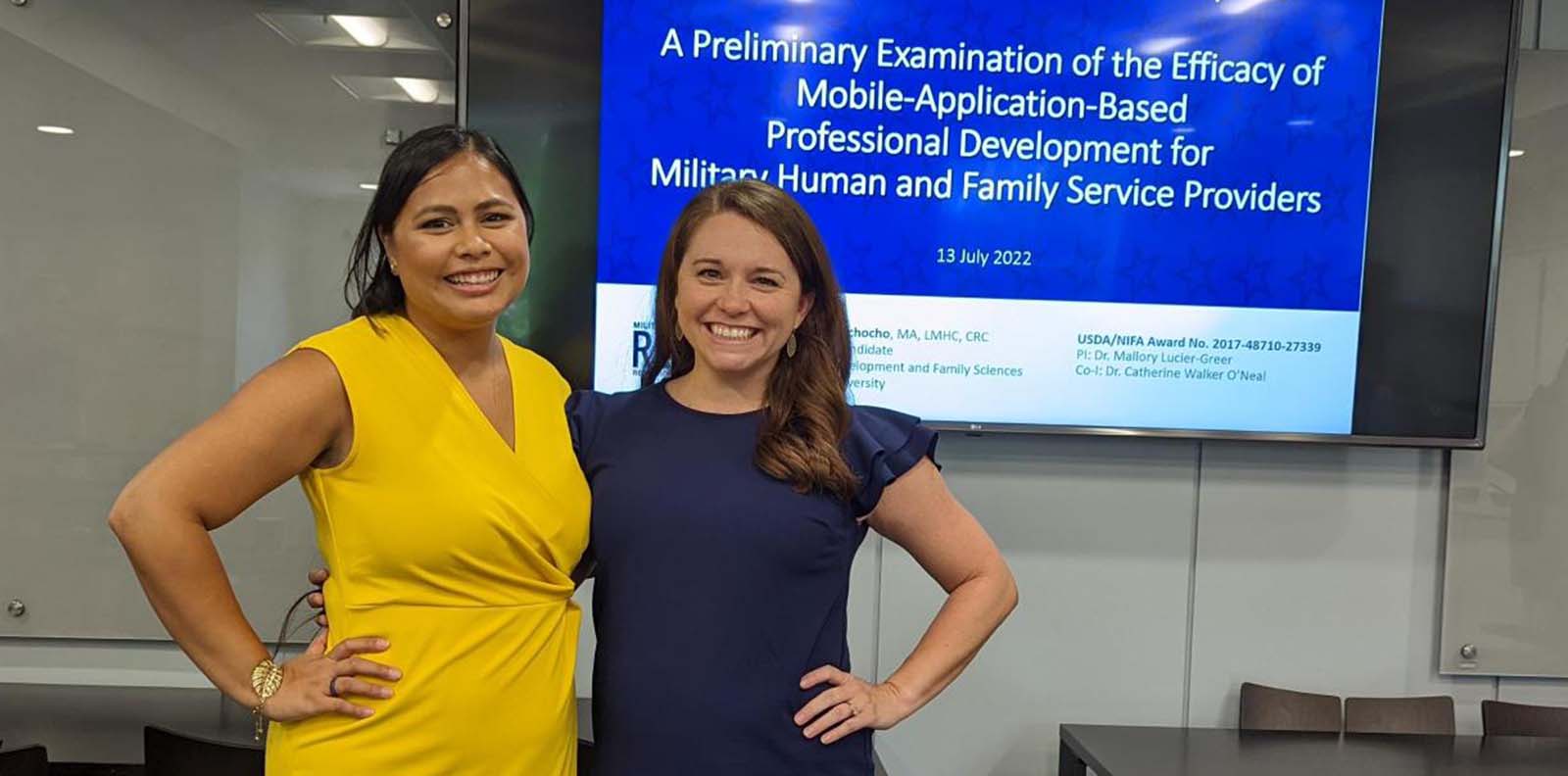Dr. Davina Quichocho (pronounced Key-chu-chu) has served as a Military REACH Graduate Research Assistant (GRA) since fall 2017. She’s been a vital member of our team, and her experiences as a military child allowed her to bring a unique perspective to our meetings, discussions, and products. The primary tasks she worked on for Military REACH were Translating Research Into Action (TRIP) Reports, Research Reports, and Research In Action articles. During her time with our team, she was also a core member of the TRIP Efficacy Study team and a mentor to our other students.
Dr. Quichocho recently defended her dissertation titled, “Translating and Applying Recent Research on Military Family Life: A Preliminary Examination of the Efficacy of Mobile-Application-Based Professional Development for Military Human and Family Service Professionals,” and she accepted a faculty position at Purdue University in their Human Development and Family Studies Department.
We connected with her to reflect on her time as a GRA with Military REACH and to learn more about her experiences:

